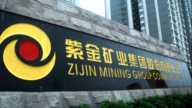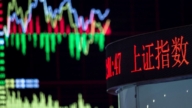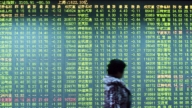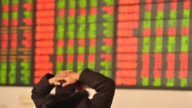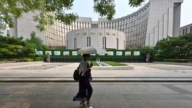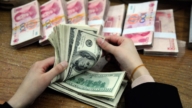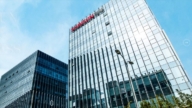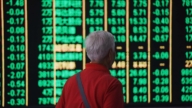【新唐人2014年02月04日訊】英國《經濟學人》週刊報導說,在過去三十年,跨國公司湧入中國,在全球金融危機之後,許多公司垂涎三尺的把目光投向神州。但是現在看起來,淘金熱已經過去了,中國經濟增長變得疲弱,而成本在上升,並且,中共政府限制了外國企業的市場准入等。
《經濟學人》1月25號報導說,一些外國公司正在離開中國。美國化妝品公司「露華濃(Revlon)」去年12月說,它正在完全撤離中國。而世界上最大的化妝品公司法國巴黎的「歐萊雅(L’Oreal)」,很快跟進表示,將停止在中國銷售它的一個主要品牌「卡尼爾」。另外,美國電子零售商「百思買(Best Buy)」和德國的競爭者「萬得城(Media Markt)」,都已經離開中國。互聯網巨頭「雅虎」也已經離開。
北京天則經濟研究所所長助理段紹譯:「投資熱確實已經在不斷的過去,但是也不意味著已經完全過去了。主要中國的經濟是從一種短缺經濟向過剩經濟過渡,所以外資在中國已經就慢慢的缺乏了足夠的競爭力。另外中國現在也不需要這麼多的外資。其實資本是獨立的,資本和市場之間,他是一種相互的雙向選擇。」
《經濟學人》的報導說,外國企業的競爭在加劇。中國已經是世界上最激烈的全球品牌戰場,但是質量長期落後的本土企業也加入戰鬥。許多企業現在有了海外經驗,一些企業在開發創新性產品。中國消費者不再只是因為外國品牌就支付高昂的價格。他們對互聯網的精通和缺乏品牌忠誠度,讓他們成為世界上最挑剔的顧客。
段紹譯:「當年中國是一種由計劃經濟向市場經濟過渡,是一種各種商品嚴重短缺的時代,現在隨著這麼多年的經濟發展,很多的產品都已經過剩了。當短缺的時候,投資就容易得到高回報。而過剩的時候,就要有更多的創新,更大的優勢,才能有更多的利潤。」
但是外資公司退出中國的原因不盡相同。段紹譯舉例「雅虎」的退出,與中共政府施壓有關。「百思買」,則是因為競爭力無法抗衡國內新興企業,不得不退出中國。
報導說,中共政府一直讓某些行業的外國公司日子難過。它限制外國銀行和經紀公司的市場准入,並屏蔽互聯網公司,包括「臉書」和「推特」。
中共嚴厲對待外國公司的情況似乎在蔓延。比如,網路設備廠商「思科」、「IBM」和「高通」正面臨「斯諾登事件」後的反彈﹔製藥商「葛蘭素史克」陷入腐敗調查﹔電腦製造商「蘋果」因為提供擔保不足,去年被迫進行羞辱性的道歉﹔而跨國咖啡連鎖店「星巴克」,被官方媒體指控價格欺詐。另外,政府打擊官員奢華的運動,也衝擊著兜售奢侈品的外國公司。
段紹譯:「中國政府官員都是不懂經濟的。總是想用非市場的手段來干預價格。這是錯誤的。但是中國政府官員對於中國本國的企業,在這方面干預是更多的。所以不代表對它(外國企業)產生了惡化,只是說,它們的超國民待遇被減少。」
而一些留下來的外國公司在中國苦苦掙扎。「IBM」說,去年最後一個季度在中國的盈利下跌23%。法國飲料集團「人頭馬君度(Remy Cointreau)」報告說,去年的前三個季度,「人頭馬干邑」的銷售下降超過30%。還有,美國快餐公司「百勝餐飲集團」,去年9月份在中國的同店銷售額下降16%。它的問題,部份是因為中共政府調查它的雞肉供應商,涉嫌違規使用抗生素。
而投資者也不再熱烈擁抱在中國大筆投資的公司。《經濟學人》以世界對中國經濟的依賴,建構了所謂的「中國依賴指數(Sinodependency Index)」,從中衡量美國跨國公司的中國營收,結果顯示,依賴中國的公司與同行比較,在過去兩年,他們的股價已經落後於同行。
報導還說,中國仍然是一個富礦。那些可以提高生產力,改善管理和回應本土口味的公司仍然可以蓬勃發展。但是中國的「黃金時代」已經結束了。
採訪編輯/秦雪 後製/王明宇
China Gold Rush Fading: Foreign Companies Leaving.
UK’s The Economist magazine has reported that during the past three decades, many multinational companies coveted China, following the global financial crisis.
It now seems the gold rush is over.
This is suggested to because China’s economic growth has become weak and tired with rising production costs.In addition, there have been further restrictions
on market accessibility for foreign companies.
On January 25, The Economist reported that some foreign companies are now leaving China. Last December, U.S. cosmetics company Revlon said that they were completely evacuating China.L’Oreal, one of the world’s largest cosmetics
company from Paris, soon followed this trend, halting sales of its major brand Garnier.
U.S. electronics retailer Best Buy and it’s German competitor Media Markt have left China, as has internet giant Yahoo.
Duan Shaoyi, Assistant Director, Beijing Unirule Institute of Economics: “The fading investment boom doesn’t mean it is completely gone.The transition from a shortage economy to a surplus economy in China made foreign investment lack sufficient competition. Additionally, China does not need so much foreign investment now. In fact, capital is independent, and it is a mutual two-way choice between the capital and the market."
The Economist reported that there is increasing competition for foreign companies. China is already one of the world’s most intensive battlegrounds for global brands. Even local businesses with long term low quality brands have joined the fight. Many companies now have overseas experience and have developed some innovative products. Chinese consumers are no longer simply paying high prices just because a brand is foreign.Their mastery of the internet, and lack of brand loyalty, makes them one of the world’s most fussy customers.
Duan Shaoyi: “Previously, it was a transition from a planned economy to a market based economy. This was associated with a severe shortage of various commodities.Now, a lot of products are in excess, with many years of economic development.Investment may get high return in a shorter time.With longer time periods, more profit requires more innovation and greater consumer advantages."
However, there have been a varied number of reasons for foreign companies leaving China.Duan Shaoyi gave the example that Yahoo quitting was because of pressure from the Chinese regime.Best Buy has left because its cannot compete
against emerging domestic enterprises.
The report said that the Chinese regime has always given some foreign companies a hard time.It restricts market accessibility for foreign banks and brokerage firms. It also blocks internet companies, including Facebook and Twitter.
Information suggests that the Chinese regimes harsh treatment of foreign companies is spreading. For example, Cisco, IBM and QCOM are facing a backlash after the Edward Snowden incident.Pharmaceutical firm GlaxoSmithKline is now under investigation for corruption in China.Apple faced embarrassment after it was forced to make an apology because of insufficient guarantees last year.
Starbucks is under accusation of price cheating by the official state-media.
In addition, the campaign to crackdown on corruption has also impacted foreign luxury goods companies.
Duan Shaoyi: “Chinese officials don’t understand the economy.
This is because they want to use a non-market solution to intervene on prices.
Local Chinese officials have more interventions in local enterprises
So, it just means their super-national treatment is reduced not deteriorated."
Some remaining foreign companies are struggling in China.IBM has said that its last quarter profit fell by 23% in China.French Remy Cointreau reported it ‘s sales of Remy Martin Cognac fell by more than 30% during the first three quarters of last year.
Also, the sales of U.S. Yum in China fell 16% last September.
This is thought to be partly because the regime suspected illegal use of antibiotics. It subsequently investigated its chicken suppliers.
Investors are no longer warmly embraced in China.
The Economist constructed a China reliability index (Sinodependency Index).
This is based according to the world’s dependence on China’s economy, to measure U.S. multinationals ‘ revenue.It showed that those companies relying on China had their stock lag behind their peers during the past two years.
The report also said that China is still a bonanza for those companies that can increase productivity, improve management, and respond to local tastes.
However, China’s ‘Golden Age’ has ended.
Interview & Edit/QinXue Post-Production/Wang Mingyu


